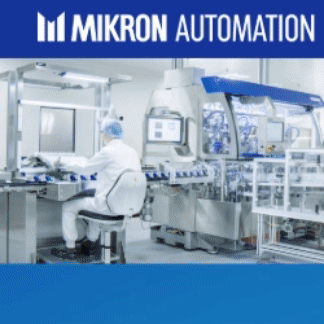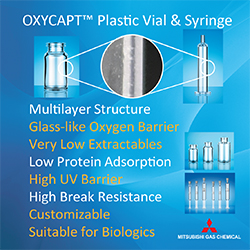Inozyme Pharma Announces Dosing of First Patient in First-in-Human Clinical Trial of INZ-701 in Patients With ENPP1 Deficiency
Inozyme Pharma, Inc. recently announced the first patient has been dosed in its first-in-human Phase 1/2 clinical trial of INZ-701 in adult patients with ENPP1 Deficiency. INZ-701 is the company’s enzyme replacement therapy in development for the treatment of mineralization disorders.
“This milestone represents an important step forward for Inozyme and, more importantly, for patients with ENPP1 Deficiency who are in dire need of an effective therapeutic option,” said Axel Bolte, MSc, MBA, Inozyme’s Co-founder, President, and Chief Executive Officer. “Data from preclinical studies of INZ-701 in ENPP1 Deficiency support inorganic pyrophosphate (PPi) levels as a key predictive marker of therapeutic benefit and show that INZ-701 has the potential to increase PPi, prevent clinical symptoms, and decrease mortality. We are committed to unlocking the full potential of INZ-701 in patients with ENPP1 Deficiency, and in parallel, we remain on track to commence our Phase 1/2 clinical trial in adult patients with ABCC6 Deficiency by year-end.”
The Phase 1/2 open-label multiple ascending dose trial is expected to enroll up to nine adult patients at sites in the United States and Europe. The trial will primarily assess the safety and tolerability of INZ-701 in adult patients with ENPP1 Deficiency, as well as characterize the pharmacokinetic and pharmacodynamic profile of INZ-701, including evaluation of plasma PPi and other biomarker levels. The Phase 1 dose-escalation portion of the trial will use a standard 3+3 escalation design to assess INZ-701 for seven weeks at doses of 0.2 mg/kg, 0.6 mg/kg, and 1.8 mg/kg, which were selected based on preclinical studies and pharmacokinetic/pharmacodynamic modeling. The dose-escalation portion of the trial will seek to identify a safe, tolerable dose for further development that increases PPi levels. The open-label Phase 2 extension portion of the trial will assess long-term safety, pharmacokinetics, and pharmacodynamics of continued treatment with INZ-701 for up to 48 weeks. Exploratory endpoints will include evaluations of skeletal, vascular, and physical function, as well as patient-reported outcomes. The company expects to present preliminary biomarker and safety data in the first half of 2022.
ENPP1 Deficiency is a progressive condition that manifests as a spectrum of diseases. Those who present in utero or infancy are typically diagnosed with generalized arterial calcification of infancy (GACI), which is characterized by extensive vascular calcification and neointimal proliferation (overgrowth of smooth muscle cells inside blood vessels), resulting in myocardial infarction, stroke, or cardiac or multiorgan failure. The condition is lethal in an estimated 50% of affected babies. Children and adults with ENPP1 Deficiency typically experience rickets and osteomalacia (softened bones), also termed autosomal-recessive hypophosphatemic rickets type 2 (ARHR2), and can exhibit a range of signs and symptoms that can include hearing loss, arterial calcification, cardiac, and neurological involvement. There are no approved treatments for ENPP1 Deficiency.
INZ-701 is a clinical-stage enzyme replacement therapy (ERT) in development for the treatment of mineralization disorders of the circulatory system, bones, and kidneys. In preclinical studies, the experimental therapy has shown potential to generate plasma pyrophosphate (PPi) and to restore it to appropriate physiological levels, thereby preventing calcification in the vasculature and kidneys, while at the same time normalizing bone mineralization. Inozyme is developing INZ-701 for certain rare, life-threatening, and devastating genetic disorders such as ENPP1 Deficiency and ABCC6 Deficiency in which PPi levels are below the normal physiological levels. INZ-701 is currently in a Phase 1/2 clinical trial for ENPP1 Deficiency.
Inozyme Pharma, Inc. is a clinical-stage rare disease biopharmaceutical company developing novel therapeutics for the treatment of diseases of abnormal mineralization impacting the vasculature, soft tissue, and skeleton. Through our in-depth understanding of the biological pathways involved in mineralization, we are pursuing the development of therapeutics to address the underlying causes of these debilitating diseases. It is well established that two genes, ENPP1 and ABCC6, play key roles in a critical mineralization pathway and that defects in these genes lead to abnormal mineralization. We are initially focused on developing a novel therapy, INZ-701, to treat the rare genetic diseases of ENPP1 and ABCC6 Deficiencies. INZ-701 is currently in a Phase 1/2 clinical trial for ENPP1 Deficiency. Inozyme Pharma was founded in 2017 by Joseph Schlessinger, PhD, Demetrios Braddock, MD, PhD, and Axel Bolte, MSc, MBA, with technology developed by Dr. Braddock and licensed from Yale University. For more information, visit www.inozyme.com.
Total Page Views: 586













